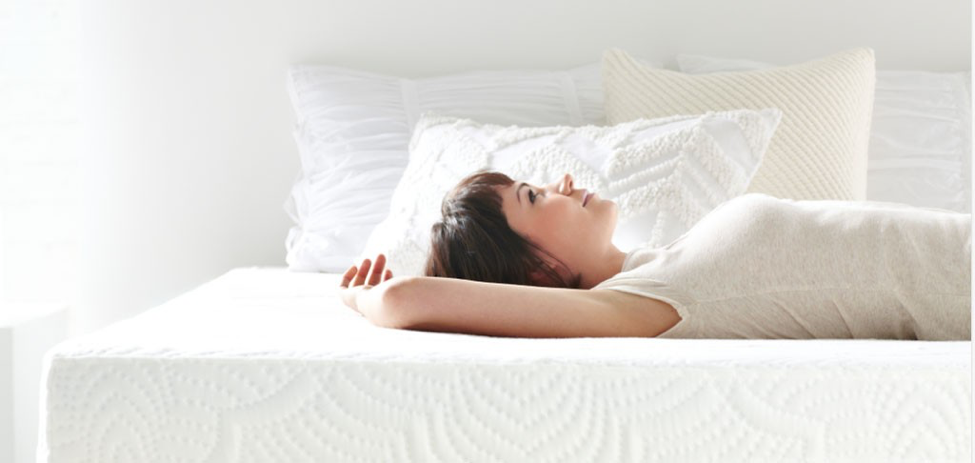- Study Says Most Parents Don’t Use Car Seats In Ride Share Vehicles Like Uber
- This 12-Year-Old Boy Is A Sophomore Aerospace Engineering Major!
- Fire Safety Experts Warn Of Hand Sanitizer Danger After A Mom and Kids Escape House Fire
- Recall Alert: Peaches May Be The Cause Of Salmonella Outbreak, 68 People Ill
- Summer Vacation In The Days Of COVID: Tips To Stay Safe
- How To Safely Grocery Shop During The Coronavirus Pandemic
- Michigan Teen With Vape-Related Illness Undergoes Double Lung Transplant
- Teen Kicks Off Anti-Vaping Campaign From Hospital Bed
- Teenager Receives Life Sentence For Strangling Sister To Death Over A Wi-Fi Password
- Toddler Falls To Death From 11th Deck of Cruise Ship
Why Your Mattress May Be a Cause of Lower Chronic Back Pain


I used to believe that a lousy body posture, lifting weights or sitting at the office for too long were to blame for my lower chronic back pain. The truth is they all contributed to it, but I found out that the bed in which we spend a significant part of our life is sometimes more at fault than other causes. An unsupportive mattress leads to unpleasant effects generated by gravity on our spine, mainly in the thoracic region of the body.
But how can one know for sure that the mattress is to blame for the pain? I must say it’s not at all difficult to establish that: there are a few easy-to-read signs which will tell you if the source of your lower back pain is indeed your mattress. Here’s a list of the most outspread symptoms:
- You feel the pain every morning, but it disappears after 15 – 30 minute, especially if you stretch a little or do a few light exercises.
- During the night, instead of experiencing a sound sleep, you wake up frequently because you can’t find your place in bed, and you keep tossing and turning around.
- Your preferred sleeping position is no longer comfortable, and you can’t fall asleep.
- When you lie down in bed, you feel too much pressure on your shoulders, hips, and knees (depending on the way you sleep).
- You have the distinct sensation that you sink into your mattress more than it would seem reasonable.
- Your partner doesn’t complain of back pains, but if you switch sides for a few nights he (or she) suddenly feels discomfort in the lower back area, while your pain diminishes. That is a clear sign that your side of the mattress is causing problems.
- If you realize that your mattress can’t provide proper distribution of body weight anymore, this is another clue regarding your back pain. Your spine isn’t well-supported, and it doesn’t remain straight during the night. Thus, you don’t get your necessary rest, and you develop back pains.
Any of the described situations should warn you that your mattress is doing more harm than good. If your children start complaining about back pains without having a previous medical condition, you should look for the same symptoms too find out if their mattress is to blame. According to www.mattressmatchers.com, even if the bed is new, lower back pain may still occur.
Let’s see the main reasons which turn your mattress into a source of back pain:
Mattress is too old
When your mattress is over ten years old, it’s about time you changed it. Most such products last more than ten years, but if you’re bothered by a chronic lower back pain which you never had before, it’s a clear sign that you need to replace the bed.
Mattress is too worn out
Nobody likes to hear this, but putting on weight will determine a more rapid deterioration of the bed. Experts say that heavier people can wear out a mattress faster than lightweights.
Mattress is not of high-quality
Low-quality products have a shorter life than top-class items. If the mattress was made of cheap materials, it’s likely that it has run its course.
Mattress is too firm
You bought a new mattress, but, if it’s too firm, it will make it difficult for your spine to maintain its standard lining-up without bending between your buttocks and shoulders. That leads to significant back pain.
Mattress is too soft
The mattress is too soft, and your body sags into it without having the necessary support for the hips and shoulders. Your spine will tend to adjust during your sleep; but the natural spinal curvature may be forced fixed, causing significant pain in your back.




0 comments